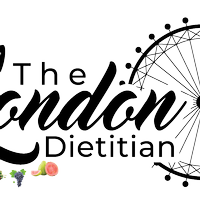If you've been on my blog before, you have likely read some of my articles where I discuss different nutrition strategies that you can use to hep improve your PCOS symptoms. Strategies such as:
- Balancing your meals.
- Switching to wholegrain carbs
- Adding more fibre to your diet by keeping the skin on all your fruit and veg.
But, what if you have already done the above and want to find out more? Well, I have you covered, as today, I will be revealing my 3 little known strategies that can help you out even more. Here goes!
Avoid Advanced glycation end products (AGEs)
I can already hear you asking: ‘what on earth are those?!' Simply put these are products that are formed in foods that have been deep fried, charred and browned (i.e. when grilled or barbecued) which can lead to inflammation in the body. Not all inflammation is bad, but the type of inflammation you see in PCOS is the of the chronic type that can then go on to cause insulin resistance and can contribute to how an illness or chronic disease develops and progresses. So that charred piece of toast that you thought is ok to eat? Yeah, that needs to be binned.
Furthermore, research has shown that AGEs can negatively impact egg quality and ovarian reserve. Studies have found high levels of AGEs in the fluid surrounding the egg and so play a role in reducing the chance of conceiving. Ok, so we now know that AGEs aren't so good to for us, but what can we do to help lower the amounts we take in through our food? The key thing here is to avoid charring or browning your foods- this usually occurs when you cook under high heat such as grilling, roasting, toasting and searing. Instead, steaming, poaching and microwaving are better cooking methods. Does that mean that you can never brown your foods ever again? Not necessarily, but just be mindful about how often you use dry heat and try to use alternative cooking methods most of the time.
Another good option is to marinate your food with some lemon juice or vinegar to help reduce the quantity of AGEs formed in the cooking process. Additionally, this is where eating your five-a-day comes in handy. By having a diverse range of fruit and veg in your diet, you can actually increase your intake of antioxidants. These are essentially molecules that help to stabilise potentially harmful molecules in our body (such as AGEs) and help to offset any potential damage.
Make extra virgin olive oil your best friend
So, many of you may have heard that the cooking oil of choice when it comes to PCOS is extra virgin olive oil. Why? Because not only does it contain a great profile of healthy fats (which is important for heart health), but it also contains antioxidants which can help mitigate the oxidative damage that comes from chronic inflammation. Additionally, it contains a special compound called oleocanthal which has very strong anti-inflammatory effects.
The pervasive myth that olive oil cannot be used for cooking continues to make the rounds. However, this is not supported by recent scientific evidence; Current research supports the use of extra virgin olive oil for dressing, sauteing, roasting and pan frying. The premise behind this myth is that it was thought that olive oil has a low smoke point and so it is not as stable as other vegetable oils when used in cooking. However, recent research has shown this not to be true. Olive oil, in particular extra virgin olive oil is very stable when heated to high temperature and due to the high levels of antioxidants present, it is more resistant to breaking down into harmful compounds (known as polar compounds) when heated.
Stay in rhythm with your biological clock
Firstly, what is the circadian rhythm? It is our internal biological clock that follows a daily cycle. Emerging evidence suggests that there appears to be a relation between when we eat and our circadian rhythms. Previously, it was thought that the main influence on this clock is light but studies are now suggesting that food also plays a role, which can either negatively or positively influence how well this clock functions.
Although studies are limited, they do consistently show that eating larger meals earlier on in the day is better for metabolic health with improvements seen in insulin sensitivity in the morning (which means that our body processes and stores glucose more effectively), faster emptying of food from the stomach and better metabolism of fats from our diet. This essentially means that you may be able to digest, use and absorb the nutrients from your food more effectively.
Additionally, whenever we eat food, the actual process of digestion takes up energy itself. This is known as the thermic effect of food and it appears to be less effective at night- another reason why shifting the majority of your calories to earlier on in the day may be beneficial for women with PCOS who may be struggling with their weight. Since many women with PCOS have a degree of insulin resistance, it may be a good idea to experiment for a few weeks with shifting the bulk of your meals to earlier on in the day. In our current culture, most of us have a small breakfast or skip it altogether, have a medium-sized lunch and then have a huge dinner, in addition to snacking non-stop in the evening before going to bed.
Liked what you read? I have so MANY MORE gems to offer that can help you reverse your PCOS symptoms. If you are struggling to manage your PCOS and want to have more treatment options than 'just lose weight', or 'start the pill', then click this link for a FREE discovery call to find out more on how my science-backed nutrition strategies can get you on the road to massive success.

